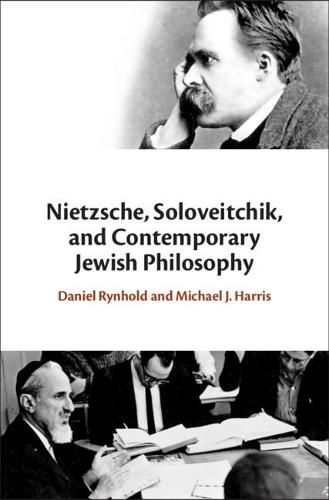Readings Newsletter
Become a Readings Member to make your shopping experience even easier.
Sign in or sign up for free!
You’re not far away from qualifying for FREE standard shipping within Australia
You’ve qualified for FREE standard shipping within Australia
The cart is loading…






What does one do as a Jewish philosopher if one is convinced by much of the Nietzschean critique of religion? Is there a contemporary Jewish philosophical theology that can convince in a post-metaphysical age? The argument of this book is that Rabbi Joseph Soloveitchik (1903-1993) - the leading twentieth-century exponent of Modern Orthodoxy - presents an interpretation of halakhic Judaism, grounded in traditional sources, that brings a life-affirming Nietzschean sensibility to the religious life. Soloveitchik develops a form of Judaism replete with key Nietzschean ideas, which parries Nietzsche’s critique by partially absorbing it. This original study of Soloveitchik’s philosophy highlights his unique contribution to Jewish thought for students and scholars in Jewish studies, while also revealing his wider significance for those working more broadly in fields such as philosophy and religious studies.
$9.00 standard shipping within Australia
FREE standard shipping within Australia for orders over $100.00
Express & International shipping calculated at checkout
What does one do as a Jewish philosopher if one is convinced by much of the Nietzschean critique of religion? Is there a contemporary Jewish philosophical theology that can convince in a post-metaphysical age? The argument of this book is that Rabbi Joseph Soloveitchik (1903-1993) - the leading twentieth-century exponent of Modern Orthodoxy - presents an interpretation of halakhic Judaism, grounded in traditional sources, that brings a life-affirming Nietzschean sensibility to the religious life. Soloveitchik develops a form of Judaism replete with key Nietzschean ideas, which parries Nietzsche’s critique by partially absorbing it. This original study of Soloveitchik’s philosophy highlights his unique contribution to Jewish thought for students and scholars in Jewish studies, while also revealing his wider significance for those working more broadly in fields such as philosophy and religious studies.